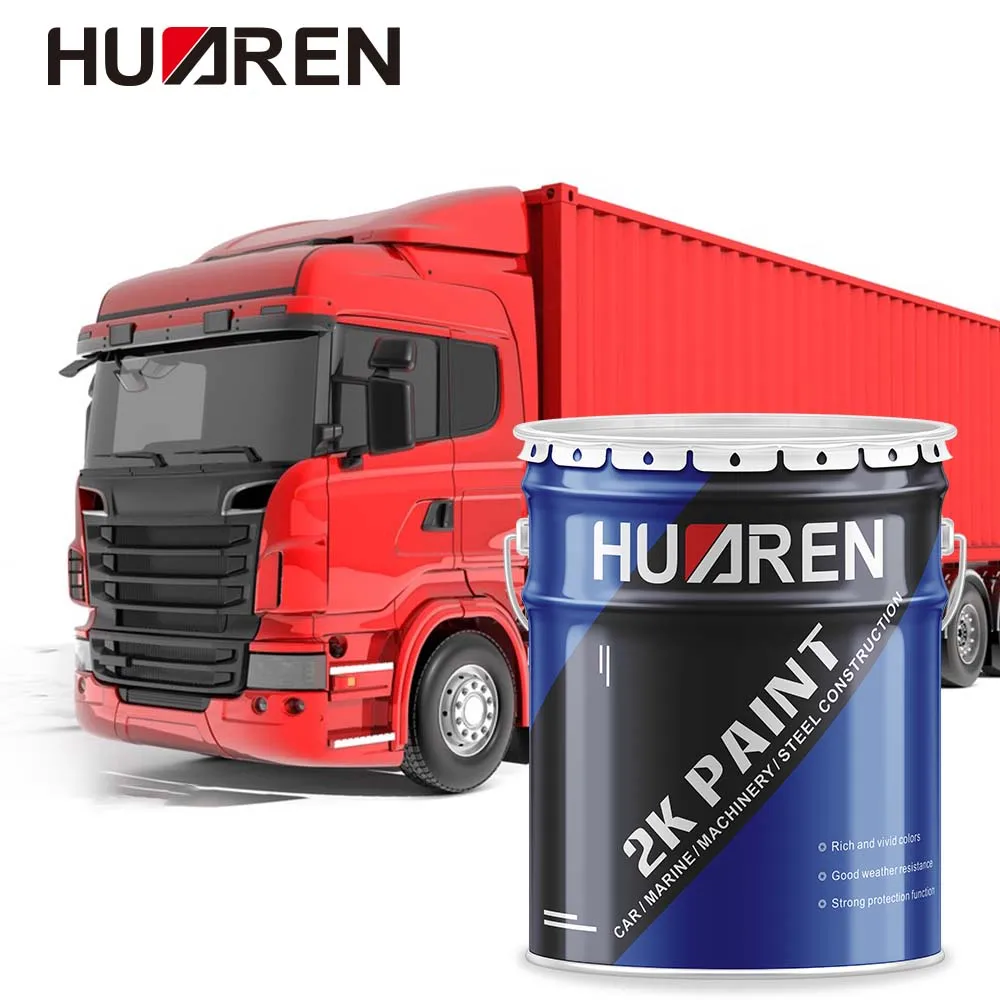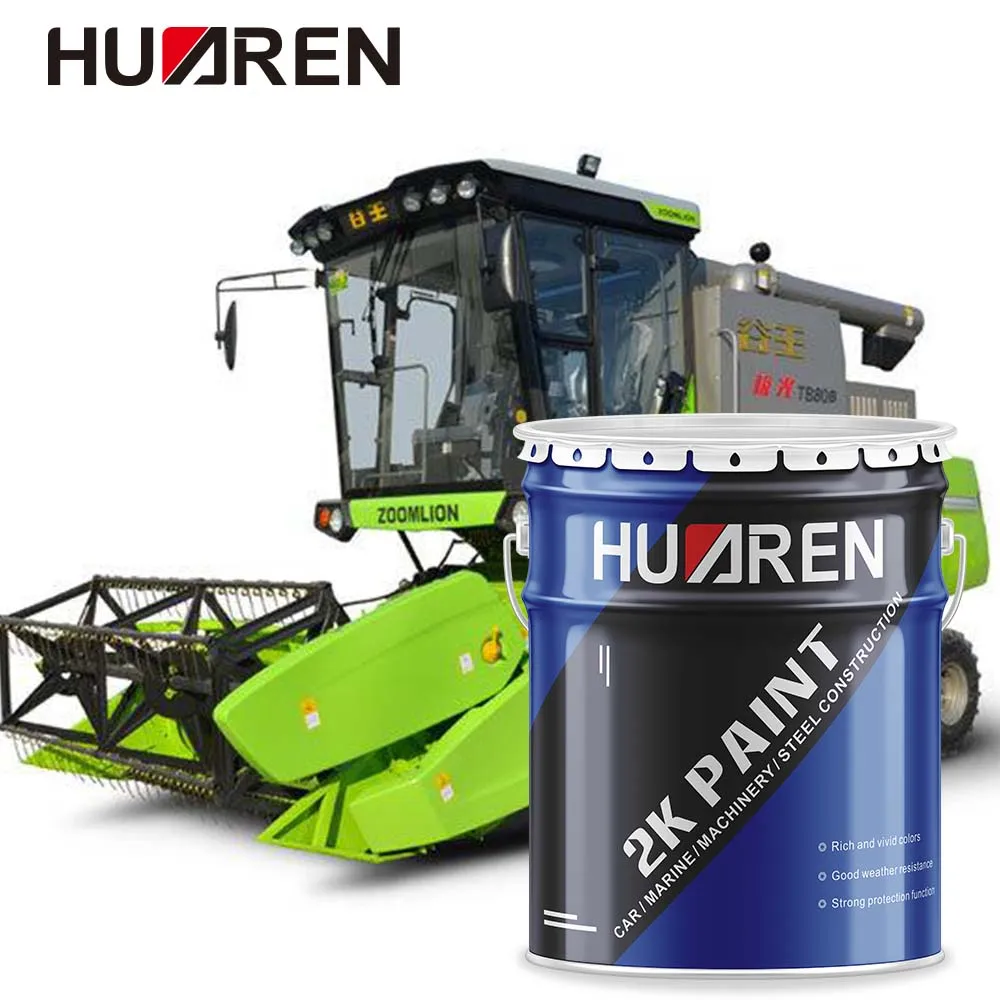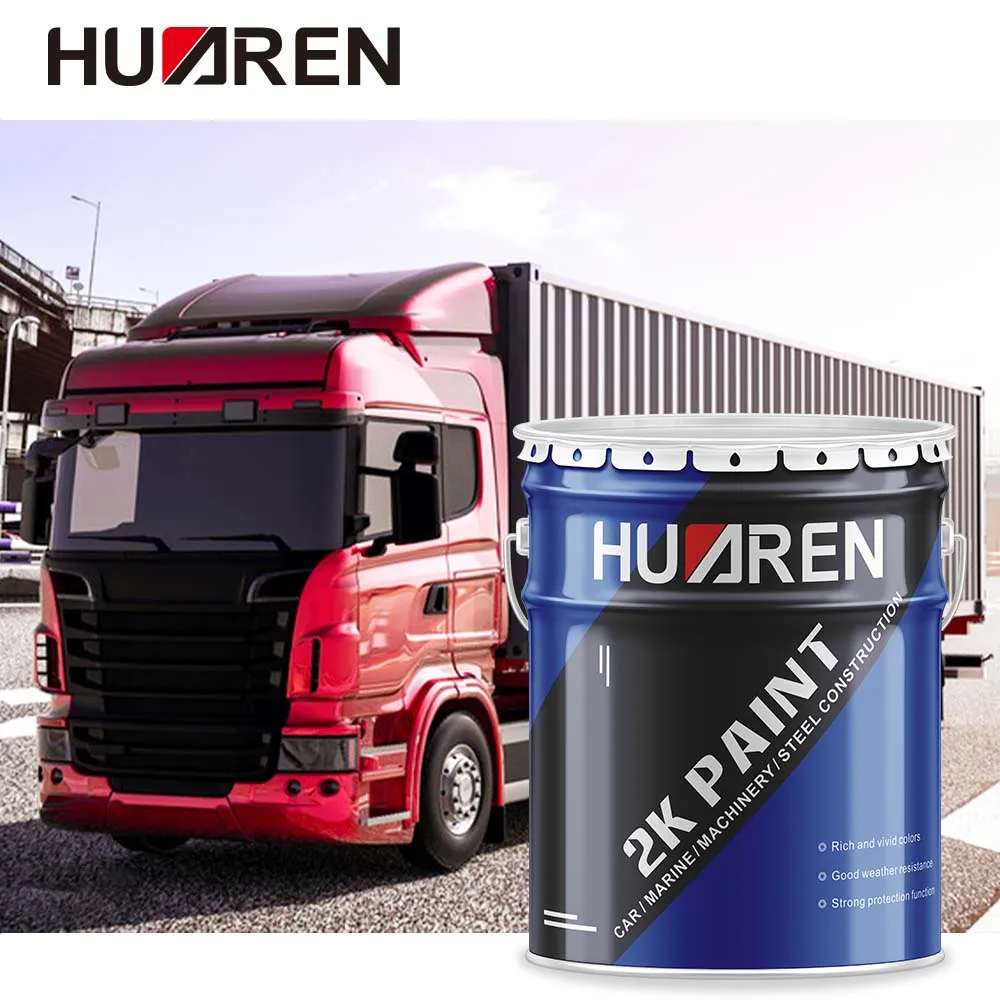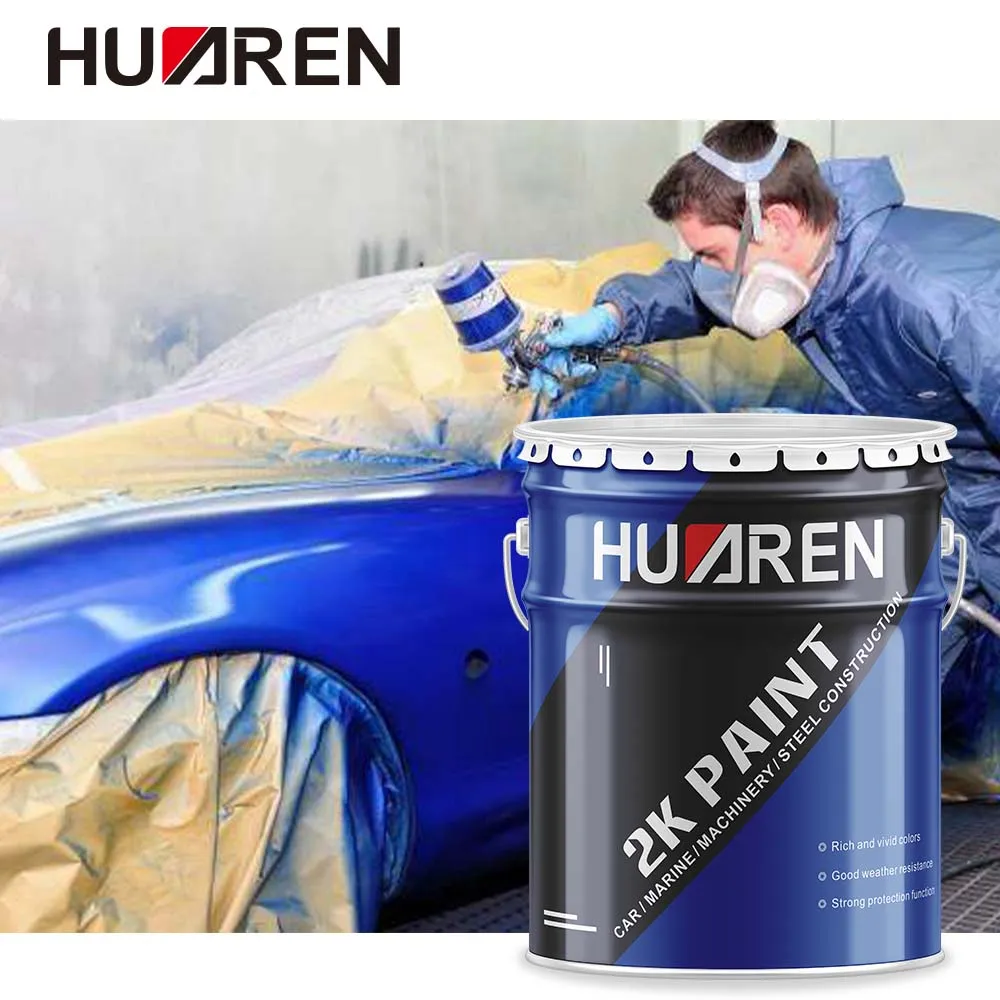The appearance and structure of cars are one of the long-term focuses of car owners, and primer, as an important part of the car paint system, plays a vital role. For cars, anti-corrosion primers can not only protect the car body from the erosion of harsh environments, but also provide good adhesion and lay a solid foundation for the topcoat. However, when faced with a variety of primer options, many people are often confused: which primer can provide the best anti-corrosion protection for cars?
This article will delve into various types of anti-corrosion primers, analyze their advantages and disadvantages, and answer how to choose the best anti-corrosion primer for cars.

What is the role of car anti-corrosion primers?
To understand which anti-corrosion primer is the best, we must first understand the main role of car anti-corrosion primers. Primer is the first layer of the coating system, which is directly attached to the metal body and plays the role of anti-corrosion, anti-rust and adhesion enhancement in the entire coating system. Specifically, car anti-corrosion primers have the following major functions:
1. Anti-rust and anti-corrosion: Cars are exposed to air, moisture, salt and chemicals, and metal bodies are prone to oxidation and corrosion. Primer can form a protective film on the surface of the car body, preventing oxygen and moisture from contacting the metal and avoiding rust.
2. Enhance adhesion: Primer can not only prevent corrosion, but also increase the adhesion of other coatings in the paint system (such as midcoat and topcoat). Without primer, the topcoat may not be firmly attached to the car body and is prone to peeling and blistering.
3. Fill in defects: During the automobile manufacturing process, the metal surface will inevitably have tiny flaws, scratches or dents. Primer can fill these small surface defects and provide a flat and smooth surface, further improving the finish and aesthetic effect of the topcoat.

What are the common types of automotive anti-corrosion primers?
There are many different types of automotive anti-corrosion primers on the market. Different types of primers are suitable for different vehicle use environments and body materials. The following are several common types of anti-corrosion primers:
Epoxy Primer
Epoxy primer is one of the most popular types of automotive anti-corrosion primers. It is widely used in the automotive industry due to its excellent anti-corrosion performance and excellent adhesion. Epoxy primer is based on epoxy resin and has strong chemical resistance and waterproof ability.
Advantages of epoxy primer:
● Epoxy primer has excellent corrosion resistance and can effectively prevent oxidation and rust of metal car bodies.
● It can firmly adhere to various metal surfaces such as steel and aluminum alloy, and provide a good adhesion foundation for subsequent coatings.
● Epoxy primers usually have strong wear resistance and weather resistance, and are suitable for vehicles exposed to the outdoors for a long time.
Disadvantages of epoxy primer:
● Epoxy primer has a long curing time, and construction at lower temperatures may be affected, requiring a longer drying and curing time.
● Epoxy primer itself is relatively hard and may not have enough flexibility to cope well with the vibration and collision generated by the vehicle during driving.
Zinc-Rich Primer
Zinc-Rich Primer is a primer containing a large amount of zinc powder, which mainly prevents corrosion of the car body through electrochemical protection. When a metal surface is exposed to a corrosive environment, zinc will corrode first, acting as a "sacrificial anode" to protect the steel material of the car body.
Advantages of zinc-rich primer:
● Zinc-rich primer can provide long-term electrochemical protection for the car body, especially for vehicles exposed to salt spray environments, such as coastal cities or vehicles on salt roads in winter.
● Its excellent anti-rust performance is especially suitable for steel bodies and can effectively extend the service life of the vehicle.
Disadvantages of zinc-rich primer:
● Zinc-rich primer itself is relatively fragile and usually needs to be used in conjunction with other coatings (such as epoxy topcoat) to provide comprehensive protection.
● Professional equipment and strict construction conditions are required during the construction process, otherwise the best anti-corrosion effect may not be achieved.
Polyurethane Primer
Polyurethane primer is a common type of automotive primer, which is popular for its wear resistance and UV resistance. Compared with epoxy primer, polyurethane primer is more flexible and can better cope with the impact and vibration of the car during driving.
Advantages of polyurethane primer:
● Polyurethane primer has good flexibility and wear resistance, and is very suitable for vehicles that need to be exposed to outdoor environments for a long time.
● It has excellent weather resistance and UV resistance, and is not easy to age and fade due to sunlight exposure.
Disadvantages of polyurethane primer:
● The anti-corrosion ability of polyurethane primer is slightly inferior to that of epoxy primer, so it may need to be used in conjunction with other anti-corrosion primers in highly corrosive environments.
● The price is relatively high, and the requirements for ambient temperature and humidity during construction are relatively strict.
Acrylic Primer
Acrylic primer is a water-based paint that is environmentally friendly and easy to use. It is often used for car protection in mildly corrosive environments. Although the anti-corrosion performance of acrylic primer is not as good as that of epoxy or zinc-rich primer, it is easy to apply, dries quickly, and has good weather resistance.
Advantages of acrylic primer:
● Acrylic primer has good environmental performance, does not contain a large amount of harmful chemicals, and is suitable for use in occasions with high environmental requirements.
● It has a faster drying time, can effectively shorten the construction cycle, and is easy to paint and repair.
Disadvantages of acrylic primer:
● The anti-corrosion performance of acrylic primer is relatively general and is not suitable for vehicles in highly corrosive environments or heavy industrial uses.
● Compared with other primers, acrylic primer has weaker adhesion and may require multiple layers of coating to provide adequate protection.

How to choose the most suitable anti-corrosion primer for automobiles?
Choosing the most suitable anti-corrosion primer for a car requires comprehensive consideration of multiple factors, including the vehicle's use environment, substrate type, construction conditions, and budget. The following are several key factors to help car owners and maintenance personnel make the right judgment when choosing an anti-corrosion primer:
Vehicle use environment
If the car is driven in coastal areas or in winter road salting environments for a long time, it is necessary to choose a primer with strong anti-corrosion performance, such as zinc-rich primer or epoxy primer. Salt in seawater and snow melting agents on the road will accelerate the corrosion of the car body, so the anti-corrosion performance of the primer is the first factor.
For vehicles used in general urban environments, polyurethane primers or acrylic primers may be more suitable, which can provide adequate protection and excellent weather resistance.
Substrate type
Different metal materials have different requirements for paint adhesion and corrosion protection. Steel car bodies usually choose zinc-rich primer or epoxy primer because they have good adhesion and corrosion protection to steel. For aluminum car bodies, epoxy primer and polyurethane primer are more suitable because they can firmly adhere to aluminum and provide effective protection.
Construction conditions
Construction conditions are also an important factor to consider when choosing a primer. Epoxy primers usually require a longer curing time and are suitable for occasions where there is sufficient time for multiple coatings. Acrylic primers, on the other hand, are suitable for vehicle repairs or small-scale construction that need to be completed quickly because they dry quickly.
Budget
Primer prices vary greatly, and different types of primers have different costs. If the budget is sufficient, it is recommended to choose high-performance anti-corrosion primers, such as epoxy primers or polyurethane primers. Although these primers are more expensive, they can provide long-term and effective protection and reduce subsequent maintenance and repair costs.

What is the construction process of automotive anti-corrosion primers?
No matter which type of anti-corrosion primer is selected, the correct construction process is the key to ensuring the effect of the primer. Improper construction may cause the primer to fail and fail to provide the protection it deserves. In actual construction, the following points need to be noted:
1. Surface treatment: Before applying the primer, the surface of the vehicle body must be thoroughly cleaned to remove oil, dust, oxide layer and old paint residue. A poorly treated surface will result in poor adhesion of the primer and affect the anti-corrosion effect.
2. Painting conditions: The primer should be applied at a suitable temperature and humidity. Epoxy primers, zinc-rich primers, etc. have high requirements for the construction environment. Low temperature and high humidity environments may cause incomplete curing of the primer and affect performance.
3. Multi-layer coating: For vehicles with high anti-corrosion requirements, multi-layer coating is usually required, including primer, midcoat and topcoat. Each layer needs to be ensured to be completely dry before applying the next layer to avoid interlayer peeling.
If you need top-notch industrial coatings, Huaren Chemical Industry Co., Ltd. is here to help. Since 1994, our company has become a renowned manufacturer and supplier of premium-quality paints, serving industries like construction, machinery, and petrochemicals. With 30 paint production lines and a factory capable of producing over 20,000 tons annually, we offer an extensive selection, including epoxy coatings, acrylic paints, and phenolic varnishes. Our products are available at customized wholesale prices, and we provide solutions to meet your specific project requirements. We proudly export to regions such as Southeast Asia, Africa, and Europe, making us a trusted global supplier. With competitive pricing, low-cost shipping options, and reliable after-sales support, Huaren Chemical is your best choice for purchasing durable, high-performance industrial paints directly from China.

